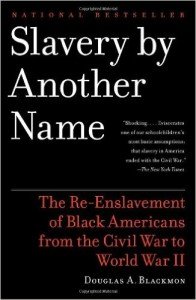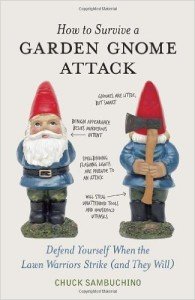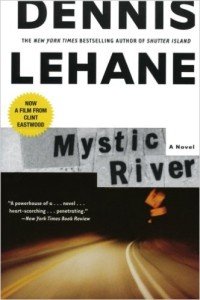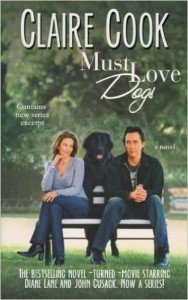
Note from Jane: I wrote the following article for Scratch magazine in 2015. It discusses what authors need to know about the process of getting to the big screen.
In 2008, writer Jeanne Bowerman was working at home in upstate New York when her husband pointed to an article he was reading in the Wall Street Journal and said, “I would see that movie.”
The article discussed Slavery by Another Name, by Douglas Blackmon, a book detailing an episode of American history that very few people know about: after the abolition of slavery, millions of African-Americans experienced new forms of coerced labor in the South and were sold into coal mines, construction crews, and plantations.
Bowerman was on her third year of writing romantic comedies with another screenwriter, and it wasn’t working—she didn’t even like to see rom-coms in the theaters. She wanted to do something meatier, darker, and drama-driven. As soon as she saw Blackmon’s book, she knew this was the project.
What she would come to realize, years later, was that she probably picked the hardest thing in the universe to sell in Hollywood—and not only because she was an unproduced country girl who didn’t know anyone in the industry.
But a massive industry shift was working in her favor: adapting existing intellectual property, such as a book, can be a smarter and easier way to break in. Director and producer Lane Shefter Bishop, who has become known as “the book whisperer” of Hollywood, says, “Harry Potter and Twilight came out and suddenly everything shifted. Now the executives are calling me for book material. I even tell screenwriters to write their book first because they’ll have a better chance at getting their screenplay made.” Bishop believes that, in the current Hollywood environment, underlying material is everything. If you can say it’s based on something—anything—it has more value.
Unlike book publishing—which is a fairly predictable process from contract to release date—the movie-making process is filled with U-turns, dead-ends, and uncertainty. It’s why authors are told never to get their hopes up or to presume they’ll have any control over the outcome. Ernest Hemingway once said, “Drive to the border of California, throw your book over the fence. When they throw the money back over the fence, collect the money and drive home.”
Whether you’re curious about how the system works or want to educate yourself (and perhaps adjust expectations) should your book ever interest Hollywood, the process can be broken down into four different stages:
- The pitch
- The option
- Development hell
- Production
1. The Pitch
Making a successful pitch to Hollywood almost always requires an existing “in” or connection. However, if you are a traditionally published author represented by a literary agency, you don’t necessarily need any further connections. Your material will be passed to the agency’s contact in Los Angeles.
For example, the process for pitching author Chuck Sambuchino’s nonfiction humor book, How to Survive a Garden Gnome Attack, followed standard protocol. Sambuchino’s agent sent the book to the Gotham Group in Los Angeles (which represents writers, directors, and actors). A Gotham agent was assigned to it, and the agent sent the work to several dozen producers known to adapt books. Eventually, director Robert Zemeckis, who apparently is highly fascinated by garden gnomes, got wind of the book and approached the Gotham Group for a two-week exclusive to consider the book. By the end of the exclusive, they started talking about a deal, and an option was sold. (An option is just what it sounds like: an option to make a film based on the material—more on this in the next section.)
Just like literary agents, Hollywood agents have individual tastes. Literary agent Ann Rittenberg, who represents Dennis Lehane, says she works with a variety of book-to-film agents and is very selective about which books she’ll send out for consideration because not all books translate well into film. Plus, she says, “Some books fall into categories that are out of favor or haven’t been working. Right now, it’s hard to get women’s fiction made into film. There’s Lifetime, there are a couple of outlets in terms of big feature films, but it’s difficult.” What does work are books with an unusual plot twist—or anything that’s a bestseller. (See Wild and Gone Girl.)
When it came to pitching Lehane’s Mystic River, Rittenberg already had interest from various producers before the book’s release, but she didn’t want to show it to them pre-publication. The material was dark, it was similar to another project that hadn’t really worked in Hollywood, and she knew they might pass quickly. So she decided to keep her cards close to the vest; she felt certain the book would hit the bestseller list and that the right person would come along then. “One day I came back from lunch and heard that Clint Eastwood’s agent had called, and I told my assistant she shouldn’t joke about things like that. So I called him back, and it was Eastwood’s agent.”
When it comes to adaptations, some books are more ideally suited for a movie of the week or TV series than for feature films. With a TV series, according to Bishop, the question is always: Could this sustain a hundred episodes? Also, the size of the fictional world dictates its suitability for TV. If it’s a big world (e.g., outer space), that usually means no TV, because it would be too expensive to produce. Movies of the week often tap into current events or tackle a social issue.
Rittenberg strongly advises authors that if you are asked directly whether your book’s film and TV rights are free, you should never say yes, especially if you have a literary agent, for two reasons. First, there may be a film agent who has the book and is working on it, but word hasn’t circled back to your literary agent that there may be an offer. (Literary agents don’t always know exactly who the book-to-film agent has been talking to from one week to the next.) Second, there’s a possibility than an unethical Hollywood agent or producer, upon hearing the rights are available, might make a pitch to a studio without optioning the book and kill the chances of you making a deal later with that studio.
When Bowerman wanted to option Slavery by Another Name, she had no money to offer, no connections, and no published clips. She worried that someone else was going to adapt the book before she did. In a moment of incredible chutzpah (a near-requirement for aspiring screenwriters), she flew to meet Blackmon in Atlanta to pitch herself and kept communicating with him until he eventually agreed to give her a shot at writing a dramatic feature based on the material. Bowerman says, “His appeal to working with me was that he knew that if he sold the rights to someone else, he wouldn’t get a chance to put his hands on the script. … But he was taking a really big risk taking it off the market.”
2. The Option
Very few options ever result in movies, meaning the option payment is rather like free money. Take it, enjoy, and don’t worry. Sambuchino says most authors can expect something in the high four figures, but that the fee for an option “varies like crazy,” just like book advances.
An option also includes very specific terms and conditions for what happens if the movie does in fact get made and released. Therefore it’s helpful to understand what gets negotiated—this negotiation affects everything from the author’s earnings to how many tickets the author receives to the movie premiere. All of these things collectively are called deal points.
Rittenberg says it’s very important in such deals to limit the studio’s reach, especially now, as rights grabs are getting worse. “They’ll come right out and say they get publication option on the author’s next book. Absolutely not! You have to sit on top of them and say ‘No way.’ You have to make sure the studio’s contract doesn’t interfere with the publisher’s rights.”
Here are some common deal points:
- How much will be paid for the option? Typically, authors get paid for the option (which doesn’t mean the movie gets made). Then they’re paid a second time, either by a studio or producer, when cameras start to roll. In the case of How to Survive a Garden Gnome Attack, Sambuchino was promised ten times the option price if the film actually got made. (That’s not necessarily an industry-wide standard.)
- How long is the option good for? Typical terms are twelve, eighteen, and twenty-four months. If the option money doesn’t look good, then it might be possible to negotiate an even shorter term, such as six months.
- Can the option be renewed, and for how long? If the option expires and isn’t renewed, the book can be sent out again to other directors or producers for consideration.
- Does the author get his name in the credits? If so, in what font and size relative to other people in the credits?
- Does the author get to review the script or have any input into the process? (More on this in the next section.)
Keep in mind that the agents involved keep 20 percent of whatever the author receives—10 percent goes to the literary agent (assuming there is one) and 10 percent goes to the book-to-film agent (again, assuming there is one).
3. Development Hell (or Writing the Script)
Once the option is final, the next step is finding a screenwriter to adapt the work to the screen, but this is not a straightforward process. Very few films are written by only one person, and the screenwriters who start a project are commonly fired at some point in the process when the studio decides it needs a different approach. (Often, the original screenwriters are brought back after the rewrites don’t work out.)
Throughout development hell, the author rarely has any say or involvement unless she’s a bestselling author with some clout. Either way, most agents discourage their clients from getting involved. Sambuchino says it was never important to him to be consulted or be able to review the script. “I was opposed to doing anything that would jeopardize the deal. I’m not Suzanne Collins, just do the deal, I get it.”
Dennis Lehane, however, was a big movie fan and was able to strike a deal that ensured he would have input. He first wanted to know who they had in mind to write the adaptation—which he had a very strong opinion about. Fortunately, Eastwood was able to secure Lehane’s first choice, Brian Helgeland, the writer who had adapted L.A. Confidential. In one or two areas, Lehane contributed scenes to the script.
Bowerman’s project, Slavery by Another Name, illustrates an alternative method of getting a book to screen, which is to write the adaptation first and then get someone to commit to producing the film (whether a director, producer, studio, or actor). The difficult part of adapting this particular book is that it doesn’t have a fictional story with an arc—rather, it covers eighty years of history. So Bowerman had to figure out where the story was, and it’s taken her nearly seven years of pitches (including one to HBO), several script consultants, and countless rewrites to truly believe the script can’t get any better. How does she know? “This last version, one of my friends read it and said it was a fast read. That’s the ultimate compliment.”
4. Production
At some point during development, the film will either succeed in getting the green light or not. Before cameras start rolling, financial backing must be secured, the right talent brought on board, and the target market or audience defined.
Claire Cook, the bestselling author of Must Love Dogs, says she feels like one of the very few authors who have had a positive experience seeing a book make it onto the screen. Her work caught the attention of director Gary David Goldberg (Family Ties, Spin City), who picked up Must Love Dogs at a bookstore, read it, loved it, and made an offer to Cook’s agent. (There are a few more dramatic twists and turns to this story, which led to Cook and Goldberg becoming friends, but ultimately that’s what happened.)
Cook says, “I got lucky in the sense that Gary was unusual in a couple ways. He had made enough money through his own career, through TV syndication, that he had total autonomy. So when he optioned it, it was his money. When main cameras roll, that’s when you get your big payout, and that’s when I got my money.”
Because Cook had a good relationship with Goldberg, she was invited on the set during filming and granted opportunities many authors never receive, contractually or otherwise. However, she didn’t insert herself into any of the creative decisions that needed to be made, or into the scriptwriting process. She felt that her role was to cheer everyone else on and help them in any way she could—to bring good energy to the project. She says, “When someone is devoting a couple of years of their life to your book, hey, I’ll get coffee, I’ll do whatever you want, rather than stomping my foot and saying ‘Where’s page 38?’”
Cook never judged the movie against the book. Her philosophy is that whoever options the material has the creative right to make whatever movie he wants to make. Two of her other books have been optioned, but not made into films. She says she’s patient; the right person will come along. “There have been times where I’ve thought about doing a screenplay, but the best thing I can do as a writer is pick one thing and keep getting better at it. Screenwriting is a different kind of writing. I love watching movies, but I don’t love reading scripts. They’re not real compelling.”
Back to the Start
The option on Sambuchino’s book has reached its expiration. The deal was first announced in April 2011. At the time, the picture was conceived as an R-rated horror-comedy that would cost between $20 million and $30 million, according to industry reports. Later on, news outlets reported the film would be an edgy PG-13 adaptation, similar to Gremlins, that would combine live-action humans with scary CGI garden gnomes.
Sambuchino says, “Ultimately, in my case, [the scriptwriting partners] could never settle on the perfect draft together and left the project. They hired a second writer to tackle it, and how much [that writer has to] follow in their footsteps is up to the studio.”
As for Slavery by Another Name, Bowerman says she’s decided to move on to other projects. The book was adapted into a PBS documentary in 2012, but that didn’t fan the flames for a Hollywood feature. The subject matter made the dramatic script too much of a challenge to sell—it was a period piece, a drama, and about the African-American community, all qualities working against it in risk-averse Hollywood. She says it’s the kind of project that Hollywood never undertakes unless someone champions it. “Brad Pitt getting behind 12 Years a Slave—you need that champion. [You have to] find the person who has the courage to take it on.”
Rittenberg echoes that sentiment, emphasizing it’s not the be-all and end-all to have a book optioned, or even make it to production. It’s important that an author feels the filmmakers understand the book and have a vision for it on the screen. “Don’t be too eager to do it,” she says. “Find out what the credentials are [of the person optioning], and ask: How likely is it this producer will get something made and make good decisions for the book on film?”
Alternative Paths for Unagented or Independent Authors
Authors without agents—and self-published authors—can get their books considered by Hollywood, if with a little more difficulty (or creativity, depending on how you look at the situation).
- Theoretically, an author could try approaching a Hollywood agency such as the Gotham Group directly, without a literary agent. You would need to become a pro at pitching in writing, over the phone, and/or in person at a pitchfest.
- You could write a script based on your book and submit it cold to studios and agents. But for authors not interested in a career in scriptwriting, this doesn’t make much sense. Even if the script is good, there’s a minuscule chance it will get produced, and writing a great script mostly puts you in a position to get hired as a scriptwriter. (In Jeanne Bowerman’s case, this was in fact one of her top goals, which she accomplished.)
- Get your book to take off at Amazon and rank in the top 1 percent. This happened to Colleen Houck, the author of Tiger’s Curse. When her self-published young-adult novel blew up on Amazon, she started getting calls from movie producers.
If the above sounds discouraging, it might be time to simply start a new book. Producer Lane Shefter Bishop of Vast Entertainment has considerable success with book-to-movie deals based on unpublished and partial manuscripts. She reads hundreds of submissions a week—material that hasn’t gone to publishers yet, such as book proposals and partials—and she doesn’t actually need the whole book to sell it, because so much gets changed during the adaptation process.
She says, “I think there’s something to be said [for] getting to a book so early that the buyers can adjust it to what they want it to be. That’s the big plus to doing it the way I do it.” With finished books, she says, studios don’t feel so much freedom, and it gives them a reason to pass. “It’s better that I get it early and the author can change the ending.”
When reviewing material, Bishop tries to get a feel for whether there’s a hook to it—if not, it’s an easy pass. “If it’s a story of a mother-daughter going cross-country on a journey to find themselves, I can’t sell that, there’s no hook.” She needs to be able to sell the concept in one sentence.
Claire Cook also mentioned an alternative that she’s observed in the market, something called a “shopping agreement,” where a writer or producer puts time into developing your work but doesn’t option it. Any money you make comes directly from the studio if a film gets made. Cook says, “It’s happening more and more instead of directly optioning. You’re in this together—the money thing has changed like it has in book publishing.” These agreements are far from standard, but since it’s a buyer’s market, they might be suggested more often than before. Jeanne Bowerman, who works as an editor at Script magazine, says to carefully research people who want to either option your work or help develop your work. “Technically, I’m a producer. I could say to someone, ‘I want to produce your book, I want your rights.’ A lot of people call themselves producers. Really make sure their personality has a sensibility that they can get shit done.”
For more about screenwriting, read How to Sell Your Screenplay (for Beginners). If you’re an author looking to consult with an expert on book-to-film adaptations and related questions about the TV and film industry, I recommend Jeanne Bowerman.

Jane Friedman has spent nearly 25 years working in the book publishing industry, with a focus on author education and trend reporting. She is the editor of The Hot Sheet, the essential publishing industry newsletter for authors, and was named Publishing Commentator of the Year by Digital Book World in 2023. Her latest book is The Business of Being a Writer (University of Chicago Press), which received a starred review from Library Journal. In addition to serving on grant panels for the National Endowment for the Arts and the Creative Work Fund, she works with organizations such as The Authors Guild to bring transparency to the business of publishing.





[…] What authors need to know about the process of getting a book adapted to the big screen. […]
Hi Jane, you helped me before, I wrote a book, Crossroads by Robert Alfred. I would like to put this novel Into a movie. I have good music behind the different scenes in the 50’s to the 80’s, I believe I have something good here, can you steer me in some direction.
Thank you, Bob E. [bobe46@comcast.net]
Hi Robert – I’m afraid you’ll need to find an agent or manager who can help sell the rights, and there’s no easy path to securing one, or any straightforward resource I could point you toward.
Another opportunity for pitching a movie is at film festivals. Napa Valley Film Festival has a pitch session, which I pitched a movie from a novel, won and was invited to pitch it to a group of execs at the Weinstein Company.
Appreciate the tip!
[…] Note from Jane: This article first appeared in Scratch magazine. It has been edited and updated for my site. It discusses the most common paths to production for a first-time screenwriter. Also: Want to learn how a book becomes a movie? […]
Great to see the piece republished here, Jane! The adaptation of ‘Slavery by Another Name’ is ongoing. Every time I decide to step away, something (or someone) pulls me back in. In 2014, the feature script was recognized as one of the Top 25 in Tracking Board’s Launch Pad Competition, and I was contacted by a manager to pursue it as a TV miniseries. We’re currently drafting the treatment. The subject matter is so vast we’re finding the 10-hour mini a perfect way to explore the story. Fingers crossed! As you can see, there is no simple path from book to screen.
Wonderful to hear! Fingers crossed. 🙂
[…] What authors need to know about the process of getting a book adapted to the big screen. […]
[…] How a Book Becomes a Movie, by Jane Friedman – “In 2008, writer Jeanne Bowerman was working at home in upstate New […]
I sold the film rights to my Detective Emilia Cruz mystery series and the best and first thing I did was to engage an intellectual property rights attorney. The resulting contract is the first of several dealing with the various streams of income related to the project, and having this expertise in my corner will continue to be critical. I strongly recommend that other authors get this type of representation if they are serious about selling film rights.
Thanks for sharing your experience, Carmen. I assume this a self-published mystery series and you don’t have an agent—thus the attorney?
[…] Friedman on Jane FriedmanHow a Book Becomes a Movie “In 2008, writer Jeanne Bowerman was working at home in upstate New York when her husband pointed […]
Thank you so much for all this great information. It’s a daunting process, trying to get a novel made into a movie, but it’s encouraging to know some authors actually accomplish this. I’ll be sharing your post with many of my author clients who’ve asked about this!
[…] If you can’t be in L.A., check out this article by Jane Friedman on “How a Book Becomes a Movie.” […]